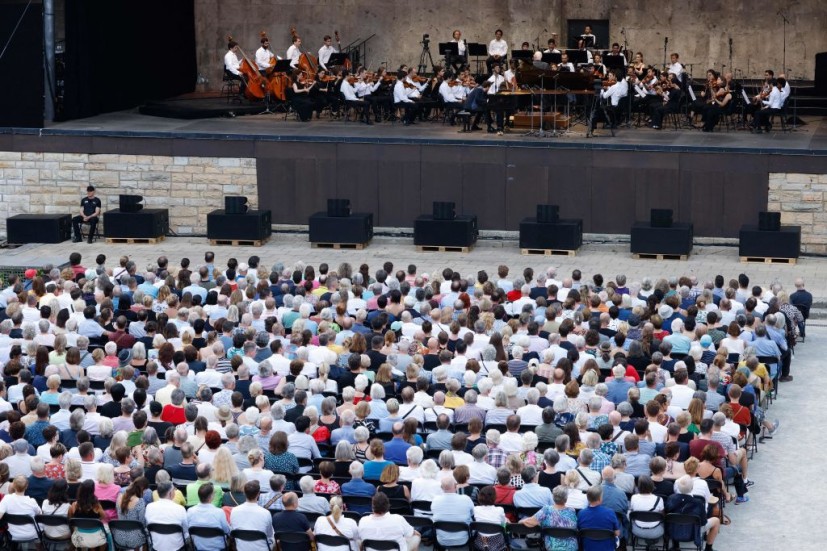Through feeling alone, music can bring people together. Symphonic sounds have been compelling humans to connect since the dawn of musical invention, from concertos of the 1800s to concerts by pop icons like Taylor Swift.
In a recent study published in the journal "Scientific Reports," last Oct. 5, this notion is further explored. Researchers examined concertgoers at classical concerts and found these audience members "syncing together" physically, through their breathing, heart rate, and even their skin conductivity.
In addition, people who possess personality traits like "openness" were much more likely to achieve "synchrony," the term that researchers used to describe processes done with a high degree of coordination that can't be replicated through chance.
"When we talk about very abstract things such as aesthetic experiences, how you respond to art and to music, the body is always involved there," Wolfgang Tschacher, one of the researchers involved in the study, told AFP.

Rundown on the 'Embodiment of Music Experience' Study
In the study, Tschacher and his colleagues set out to investigate the theory of "embodied cognition," which basically refers to the idea that the body also affects the mind as much as the mind controls the body.
The group of researchers observed a collective of 132 audience members spanning three different classical concerts. All of the concerts played the same exact string quintet compositions by Ludwig van Beethoven, Johannes Brahms, and contemporary composer Brett Dean.
To collect the data, cameras positioned overhead and wearable sensors were used, in addition to questionnaires that inquired about the concert-goers' personalities, their enjoyment of the performance, and what they felt after it.
All in all, the researchers found evidence of high statistical significance in the "synchrony" of people in the concerts. Specifically, the participants were observed to have synched heartbeats, slowing down or going faster during the same musical passages. Synchronization of "skin conductance," which can basically be linked to goosebumps, was also observed using the sensors along with slight body movements that the cameras caught.
"The significant synchrony of body movement appears noteworthy, as the audiences of all concerts were seated in dimmed lighting," the researchers noted.
That said, although breathing rates essentially aligned, the audiences' inhalation and exhalation did not actually synchronize.
Read Also: Laufey Is a Jazz Icon for Gen Z, But Some People Think Otherwise
What the Study Tells Us About Music's Role with Connections
Expectedly, people who had traits that made them more "agreeable" were more inclined to "sync up" with others. On the other hand, those who had signs of "neuroticism," or people who exhibited fearful or other negative behaviors, were much less likely to achieve synchronization with others.
"Extroverted people are very social, they tend to intermingle with people, they want to be in power, and they want to have a certain self-value," said Tschacher, while adding that this was typical in previous research as well. While extroverts may be more unreserved, they tend to not focus on the music as much.
Tschacher Believes that the study's findings pull evidence in favor of the "embodied cognition" theory, which could help explain the role military marching exercises have in building togetherness between soldiers.
Read More: Royal Harmony: King Charles III's Favorite Classical Music Masterpieces Revealed